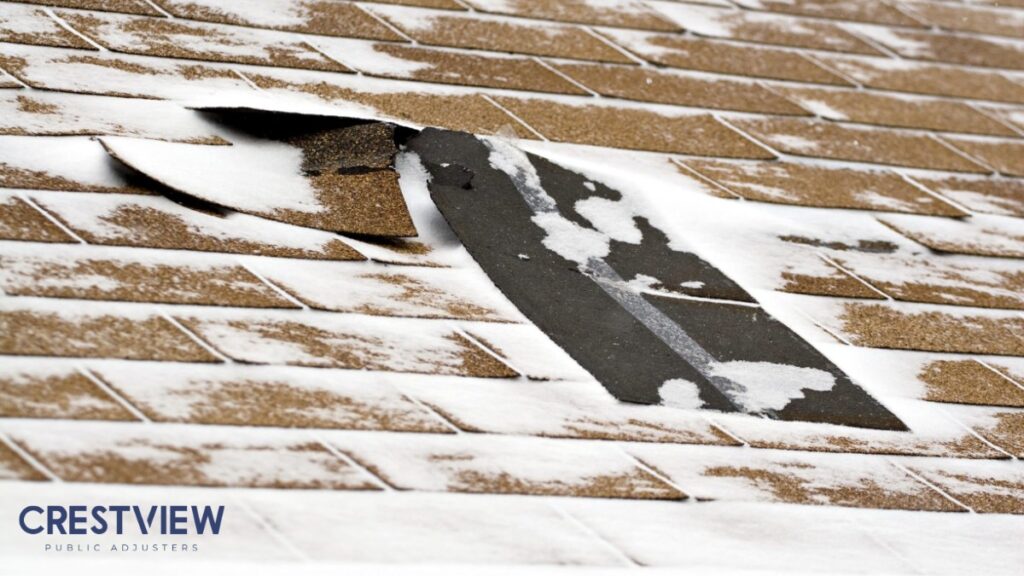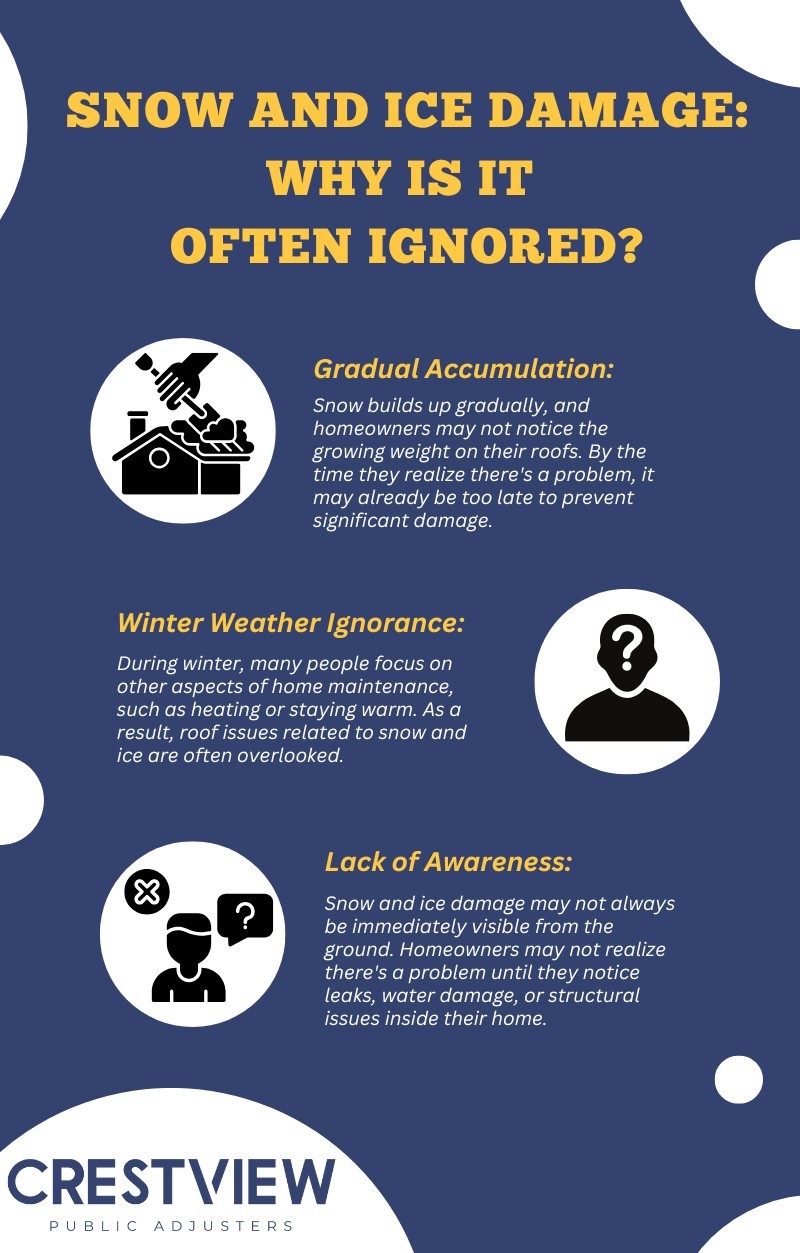Key Points:
- Snow can cause serious damage to roofs, including structural damage and leaks.
- The weight of accumulated snow and ice can lead to roof collapses if not properly managed.
- Regular maintenance and timely removal of snow are crucial in preventing damage.
Winter weather is often a beautiful sight, but it can also bring significant risks to your home. With the potential for significant structural damage and costly repairs, it’s essential to understand how snow can affect your roof and what steps you can take to protect your home.
Can Snow Damage Roof?
Yes, snow can damage roofs. While a few inches of snow might not cause immediate harm, the weight of accumulated snow and ice can put a significant strain on the structure of your roof. The risk of damage increases with the amount of snow and ice, especially if it remains on the roof for extended periods. When snow melts and refreezes, it can create ice dams, blocking proper water drainage, leading to leaks inside your home.
Several factors contribute to the extent of the damage. The type of roof, the condition of the roof’s materials, and how much snow accumulates all play crucial roles in determining the level of potential damage. It’s essential to keep an eye on snow buildup and take action if the load exceeds safe limits.
What Are the Risks of Snow Accumulation on Roofs?
Snow accumulation on roofs can lead to various issues, some of which can be costly and dangerous. The most common risks include:
- Roof Collapse: The most severe consequence of snow accumulation is a roof collapse. When snow builds up and doesn’t melt or is not removed, it can add significant weight to the roof structure. Depending on the design and age of your roof, this weight may exceed the structure’s tolerance, causing it to buckle or collapse.
- Ice Dams: As snow melts from heat escaping through the roof, the water may refreeze at the edges, forming ice dams. These dams block proper drainage, preventing melted water from flowing off the roof. This water can then back up under the shingles, leading to leaks and water damage inside your home.
- Roof Leaks and Water Damage: Even without ice dams, snow that sits on the roof for too long can cause leaks. Water can seep through cracked or damaged shingles and underlayment, leading to costly repairs and potential mold growth inside your home.
- Structural Damage: The added weight of snow can put stress on the roof’s framework, leading to cracks in the beams or rafters. This may require expensive repairs or even complete replacement of the roof structure.
How Can You Prevent Snow Damage to Your Roof?
Preventing snow damage requires proactive maintenance and regular checks. Here are some steps to help minimize the risks associated with heavy snow accumulation:
- Inspect Your Roof Regularly: Conduct regular inspections of your roof to check for signs of wear and tear. Look for cracked shingles, damaged flashing, or areas where snow can easily accumulate. If you notice any potential issues, address them promptly before the snow season begins.
- Remove Snow and Ice Safely: If you notice snow accumulating on your roof, it’s essential to remove it as soon as possible. You can use a roof rake with a long handle to safely remove snow from the edges of the roof. Be sure not to climb onto the roof yourself, as this can be dangerous. Hiring a professional can help prevent accidents.
- Insulate and Ventilate Your Attic: Adequate insulation and airflow in your attic can reduce the speed at which snow melts, preventing the formation of ice dams. By keeping the attic cold, you reduce the likelihood of ice dams forming and protect your roof from the weight of accumulated snow.
- Strengthen the Roof Structure: If you live in an area with heavy snowfall, consider reinforcing your roof to handle the extra weight. A structural engineer can assess your roof’s ability to withstand snow loads and recommend improvements if necessary.
Gutter Maintenance: Keep gutters clear of debris so that water can flow off your roof without obstruction. Blocked gutters can contribute to ice dams and water buildup, causing potential leaks and damage.

How Much Snow Can a Roof Hold Before It Becomes Dangerous?
Determining how much snow your roof can safely hold depends on several factors, including the type of roof, its age, and its construction. In general, roofs are designed to support a certain amount of snow based on local building codes, but this can vary.
Most residential roofs can safely hold about 20 pounds of snow per square foot. However, if the snow becomes wet and heavy, it can weigh as much as 30 to 40 pounds per square foot. If you have multiple feet of snow accumulating, especially in areas with wet, heavy snow, the risk of damage increases significantly.
It’s important to understand the snow load capacity of your roof and take appropriate measures when the snow buildup approaches this weight limit. Hiring a professional to assess the snow load capacity of your roof can help you understand its limits and take necessary action before it’s too late.
Why Is Snow and Ice Damage Often Overlooked?
Many homeowners don’t realize the potential risks of snow and ice until it’s too late. Here are a few reasons why snow and ice damage often go unnoticed:

Get Professional Help for Snow Damage Claims
If your roof suffers damage due to heavy snow or ice, it’s important to file a claim with your insurance company promptly. However, navigating insurance claims can be a challenging process, especially when it comes to winter damage. Crestview Public Adjusters can help ensure that you receive the compensation you deserve for your snow-related damages.
Contact Crestview for Expert Assistance with Winter Damage Claims
If you’ve experienced snow or ice damage to your roof, trust the experts at Crestview Public Adjusters to guide you through the claims process. Serving New Jersey, New York, and Florida, Crestview is committed to helping you secure the maximum compensation for your winter damage claims. Contact us today to get the assistance you need!

